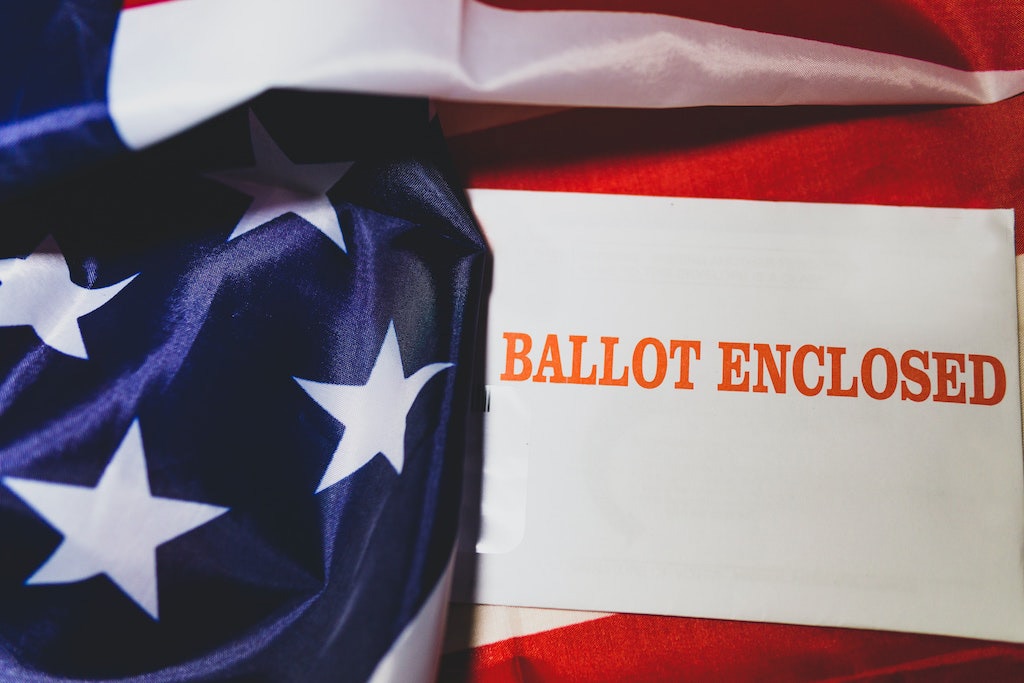
Oregon has just become the first state in the U.S. to decriminalise personal possession, showing the world that criminalisation is harmful no matter what drug is involved.
Oregon shows decriminalisation is possible with 2 in 3 voting YES
Sophie Stockman
18.2.21
Oregon has just become the first state in the U.S. to decriminalise personal possession, showing the world that criminalisation is harmful no matter what drug is involved. Police will no longer be able to make arrests for small quantities of drugs like heroin, LSD or methamphetamine. This win for health-based drug reform shows that decriminalisation is politically viable.
With decriminalisation remaining a hot topic here in the Australian parliament, how did Oregon manage to make it possible? The Decriminalisation and Addiction Treatment Initiative, also known as Ballot 110, was written by a New-York-based advocacy group Drug Policy Alliance (DPA). No stranger to leading drug reform, the DPA was also the main player in Oregon legalising cannabis back in 2014. Now they have led another winning campaign for health-based reform in Oregon.
The Yes campaign for Ballot 110 was backed by some of the world’s biggest players. Even Mark Zuckerberg and his wife donated $500,000 because they saw the importance of the reform. Over 58 per cent of Oregon citizens voted yes, meaning that anyone found with a small amount of drugs for personal use now pays a $100 fine instead of facing charges. If a person is experiencing deeper issues and isn’t able to pay the fine, they will be assessed by an addiction recovery centre and supported to access treatment programs. Not all people who use drugs need treatment, but decriminalisation means those who do need help can get it instead of being thrown in prison.
The new law in Oregon is based on Portugal’s model for decriminalisation that has been in place since 2001. This model saw Portugal go from having one of the highest rates of problematic drug use in Europe to an 80 per cent decrease in overdose deaths, a decline in overall drug use, and lower cases of HIV and AIDS. The success of the decriminalisation in Portugal prompted the DPA to send 70 advocates over there to see how it’s done before they sat down to draft a law that caters specifically for the Oregon community.
Ballot 110 doesn’t stop at simply removing criminal penalties for personal use. Other health-based initiatives to be implemented under the reform include expanding access to recovery programs, housing, and harm reduction services. This allows people struggling with addiction to be more open about what they’re going through knowing that what they’re doing is now considered a health issue that they can get help for. Prison doesn’t help people recover from drug use, but getting the right help and community support can.
To ensure there are enough resources to carry out these initiatives, money from Oregon’s cannabis tax and funds saved from keeping drug users out of the court system will be funnelled into support programs and treatment options. It is estimated that the excess cannabis tax revenue should provide over $100 million in funding for support services in the first year and up to $129 million by 2027.
Not only will this new law help those who are struggling with addiction, but it is also expected to take away a vehicle that was often used by police to target minority groups. According to a report by the Oregon Criminal Justice Commission, the reform will see a 95 per cent drop in arrests linked with racial prejudice.
We will all be looking at Oregon to see what impact decriminalisation will have and whether other parts of America – or the world – will soon follow suit.
Image Credit:
Photo by Joshua Woroniecki on Unsplash
References:
- Drug Policy Alliance. 2014. Measure 91: Regulate, Legalize and Tax Marijuana in Oregon. [online] Available at: <https://drugpolicy.org/campaigns/regulate-legalize-tax-marijuana-oregon> [Accessed 17 February 2021].
- Mapes, J., 2020. Facebook’s Mark Zuckerberg and wife, Priscilla Chan, give $500,000 to Oregon drug decriminalization measure. [online] OPB.org. Available at: <https://www.opb.org/article/2020/10/02/drug-decriminalization-oregon-zuckerberg/> [Accessed 17 February 2021].
- Ballotpedia.org 2020. Oregon Measure 110, Drug Decriminalization and Addiction Treatment Initiative (2020) – Ballotpedia. [online] Available at: <https://ballotpedia.org/Oregon_Measure_110,_Drug_Decriminalization_and_Addiction_Treatment_Initiative_(2020)> [Accessed 17 February 2021].
- Lennard, N., 2020. Oregon’s Decriminalization Vote Might Be Biggest Step Yet to Ending War on Drugs. [online] The Intercept. Available at: <https://theintercept.com/2020/11/04/oregon-drugs-decriminalization/> [Accessed 17 February 2021].
- 2018. Drug Decriminalization in Portugal Learning from a Health and Human-Centered Approach. [ebook] Drug Policy Alliance. Available at: <https://drugpolicy.org/sites/default/files/dpa-drug-decriminalization-portugal-health-human-centered-approach_0.pdf> [Accessed 17 February 2021].
- Drug Policy Alliance. 2021. Drug Decriminalization in Oregon Officially Begins Today. [online] Available at: <https://drugpolicy.org/press-release/2021/02/drug-decriminalization-oregon-officially-begins-today> [Accessed 18 February 2021].
Sign up
Sign up for news and opportunities to get involved
We are working to make drug use legal and safe in Australia so that everyone has a better chance to lead a healthy and happy life. Join us.